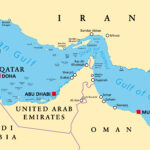Louisiana has done a good job upgrading its building codes in the five years since Hurricane Katrina, but Alabama and Mississippi have not, according to the Institute for Business and Home Safety.
“While there have been positive steps taken in a number of coastal communities and counties in Alabama and Mississippi, only the State of Louisiana moved decisively to adopt and enforce a statewide building code just four months after Katrina,” the group’s new report says.
“Building codes along the Gulf Coast today are mostly disappointing, with only Louisiana getting high marks for taking proactive steps to adopt a statewide building code,” said Wanda Edwards, the Institute’s director of code development and the main author of the report.
The Institute is an independent organization supported by property insurers and reinsurers, including Lloyd’s, Allstate Insurance Co. and Farmers Insurance Group, among others.
Louisiana adopted a statewide Uniform Construction Code within months of the hurricane five years ago, and mandated enforcement. Alabama, on the other hand, has considered many relevant bills in its legislature, including some that would have created statewide building codes. Those bills have not passed, however. All that has passed is a 2009 law that requires insurance companies to offer discounts to homeowners who build or retrofit their houses to specified hurricane standards.
Mississippi put together a Mississippi Building Code Council in 2006, but the effort only halfway accomplished anything, the report says. The Council was supposed to provide leadership for local jurisdictions, to urge them to adopt rigorous building safety standards. However, only seven counties were helped before the Council became inactive.
The report says that opponents of statewide building codes in Mississippi and Alabama have argued that the states are not rich, and the codes would make housing too expensive.
But it says that South Carolina struggled with similar issues following Hurricane Hugo in 1989, and it has similar demographics, and yet it went ahead with strict codes and building has not stopped.
The report also says there is evidence that building to stringent safety codes really does save property and money. It notes that Florida has some of the best building codes for hurricane safety in the nation. In 2004, four hurricanes hit Florida in late summer. Following the first storm, Hurricane Charley, the Institute surveyed damage and insurance claims. The survey, which looked at 5,636 homes, of which 2,100 had property claims, found that houses built to strict codes were 60 percent less likely to have sustained damage compared to those built before the codes were adopted, and that if they had damage, is was an average 42 percent less severe.
Mark Harris, who is an Alabama builder and the president of the Huntsville/Madison County Builders Association, does not agree with the report. He notes the law mandating insurance premium discounts for the homes built or retrofitted to code and says Alabama localities are adopting the 2006 edition of the International Building Code and International Residential Code, which are considered the state-of-the-art, according to the Institute report.
“The state is moving forward,” Harris says.
But according to Jeff Helms, communications director for Montgomery, Ala.-based Alfa Insurance, insurers would like to see more progress.
He said there are too few property insurers in Alabama, and those insurers are having a hard time keeping premiums affordable. He Safer building codes would help the industry mitigate risk and lower costs, according to Helms.
“We’re very supportive of stronger building codes down there on the Gulf,” he said.
Was this article valuable?
Here are more articles you may enjoy.


 Zurich Insurance Said to Near Beazley Deal Funded by Equity Sale
Zurich Insurance Said to Near Beazley Deal Funded by Equity Sale  Marine Insurers Cancel War Risk Cover as Iran Conflict Escalates
Marine Insurers Cancel War Risk Cover as Iran Conflict Escalates  Zurich Insurance and Beazley Agree to $10.9B Cash Acquisition
Zurich Insurance and Beazley Agree to $10.9B Cash Acquisition  Trump’s Hormuz Assurances Are Only a Partial Fix, Shippers Say
Trump’s Hormuz Assurances Are Only a Partial Fix, Shippers Say 


